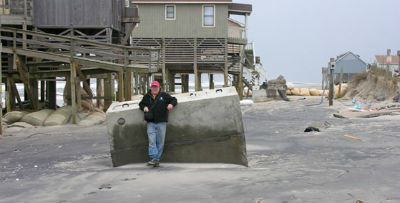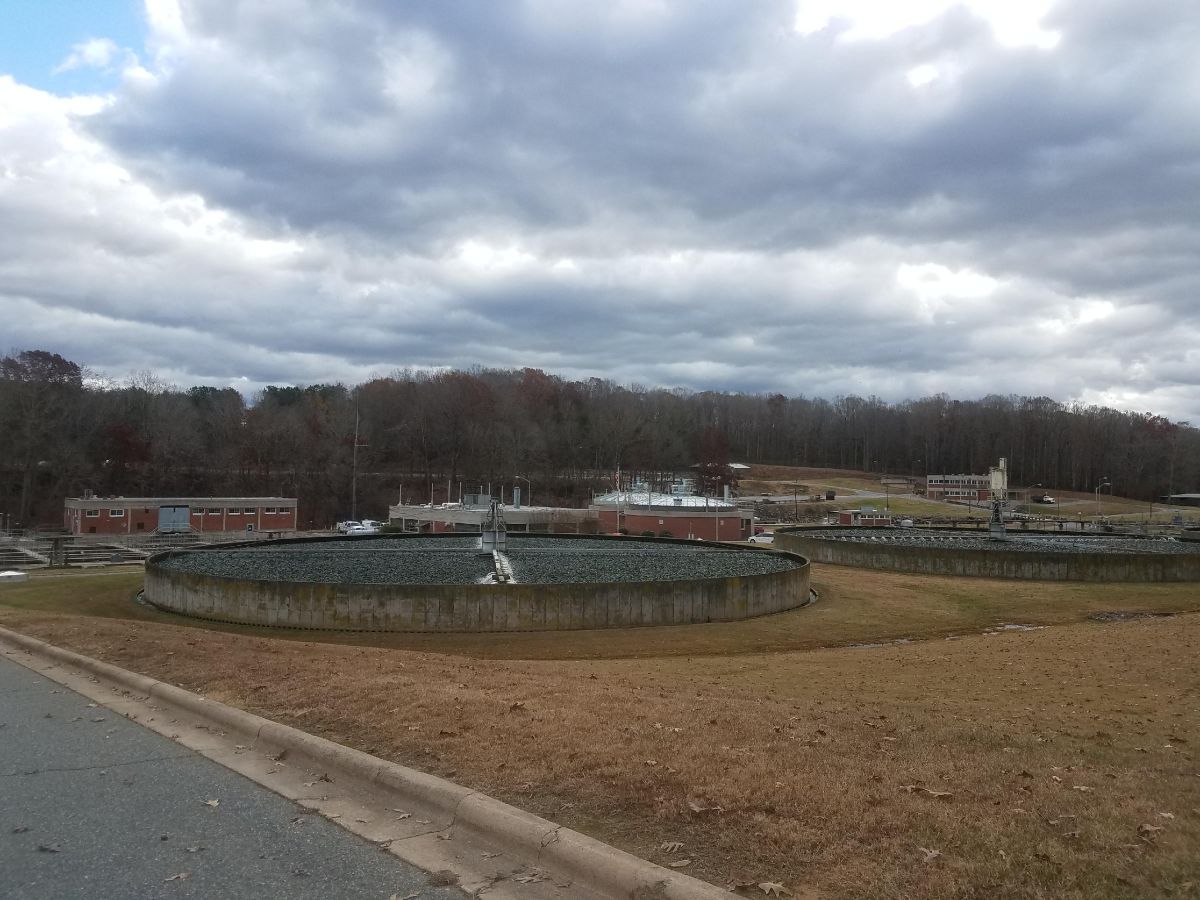Reprinted from the Outer Banks Voice
NAGS HEAD — A line of decrepit cottages along what was once Seagull Drive in South Nags Head has stood for more than three years as testimony to long-running legal battles between the state, the town and property owners.
Supporter Spotlight
Mostly in dispute have been the town’s orders to remove what it describes as “nuisance structures” and its regulatory power over the public-trust beach.
Now a new ruling by the state Division of Coastal Management has added another wrinkle. It will make it easier for the owners of houses like the ones on Seagull to replace septic systems lost to storms on the beach as long as they are 50 feet from the water at low tide.
 Beach erosion exposed a septic tank at South Nags Head before the beach was widened. Photo: Coastal Care |
The ruling grew out of a challenge from the owner of one of the Seagull cottages, who contended that a septic system should not be classified as a structure separate from a house when regulators consider the right to rebuild in coastal zones.
State rules generally prohibit rebuilding a structure that has lost 50 percent or more of its value to storm damage without obtaining a new Coastal Area Management Act permit. Tropical storms and nor’easters historically have taken out septic systems buried in the sand in front of oceanfront houses. That usually meant the systems had lost more than 50 percent of their value and could not be replaced.
“They don’t do a whole lot of damage normally to the house itself,” said Nags Head Town Manager Cliff Ogburn.
Supporter Spotlight
In a memo to the Coastal Resources Commission, Frank Jennings, district manager in Elizabeth City for the Division of Coastal Management, said a septic system would no longer be considered separately from a house when an owner applies for a permit to rebuild in a coastal zone.
So if the rest of a house is relatively undamaged by a storm, the septic system, even if was destroyed, would easily fall within the 50-percent standard.
Coastal Management is a division of the Department of Environment and Natural Resources. The Coastal Resources Commissions sets standards under the Coastal Area Management Act.
“The division, the department, and the members of the Attorney General’s staff agree that the Commission’s rules regarding repair/replacement, and the Ocean Hazard Areas of Environmental Concern, do not clearly state whether septic systems and houses should be treated as one structure for the purpose of the repair/replacement rule, or as separate structures,” Jennings wrote.
 Mayor Bob Oakes |
Nags Head Mayor Bob Oakes has sent a letter to the Coastal Resources Commission urging the panel to reconsider the new interpretation.
Ogburn appeared before the commission last week to present the town’s case on the issue. He said the commission has directed the Division of Coastal Management to specifically address septic tanks in the rules so the state does not have to rely on an interpretation.
The houses on Seagull are still under condemnation because of their condition, Ogburn said, not because of failed septic systems. Once they were in the surf at high tide; now they stand a good distance from the ocean since the beach was widened in 2011.
While the houses would still need to get local permits, they would have no trouble installing septic tanks 50 feet from the water, he said.
“On a nourished beach, it’s not hard at all,” he said.
Meanwhile, legislators in coastal areas have submitted a bill that addresses questions about the public trust beach, the area along the surf line that is private property but considered a right of way for public access.
A court ruling last year declared that localities have no regulatory power over the public trust beach. It nullified local ordinances like the one in Nags Head that allowed the town to order the removal of structures blocking the public trust beach.
The ruling grew out of a challenge by the same owners who questioned the septic tank policy.
Localities would have the right to establish policies and ordinances regulating the public trust beach under the bill.
“We’re just trying to get authority to regulate what’s on the beach,” Ogburn said.







